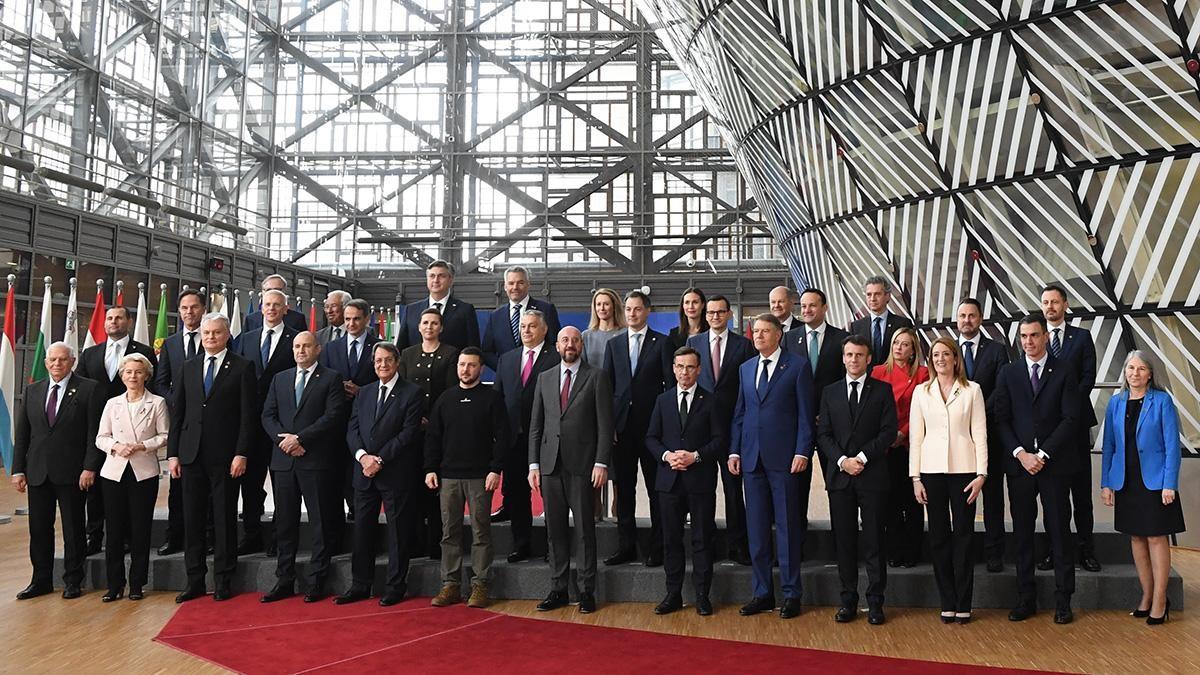Exactly one year ago, and nearly eight decades after the end of the second World War, Europe woke up to the unthinkable. Russia invaded Ukraine and started a full-scale war on the European continent which not only changed the course of future history, but the EU’s place within.

The United States seems to be indispensable for Europe’s security, while strategic autonomy and the objectives laid down in the Strategic Compass have been marginalized. While Europe is accelerating the energy transition by cutting down fossil fuel imports from Russia, it risks being overly dependent on other sources of energy coming from the United States. Europe must ensure the balance of energy dependence through increasing its own production and in parallel to ensure its own defense capabilities.
The one-year anniversary of the Russian invasion has shown the strengths and weaknesses of the European Union. The EU’s share of fossil fuels coming from Russia has dropped significantly in an extremely short period of time from 26% to 14% at the end of 2022. At the same time liquefied natural gas (LNG) imports from the US have significantly increased to help EU member states with an increasing need for energy. It is not only the lack of infrastructure that Western European countries are currently trying to construct, but serious questions are raised about the immense carbon emission footprint of LNG import reversing the commitments laid down in the Paris Agreement. There have been many foresight reports which deal with the relationship between Russia’s war and the climate agenda. The war has not only cost human lives on a local level, but fear of endangering millions due to increasing poverty, famine and climate change have also been on the agenda. The long-term negative effects on biodiversity, energy and food security, global supply chains and the ecosystem have yet to be accounted for especially in less developed parts of the world.
While the indispensability of NATO has been tried and tested in the past year, it is ever more important to strengthen the European leg of defense. Europe lost roughly thirty-five per cent of its defense capabilities over the last two decades, as the idea of a European army is fading day-by-day. The continent is not only struggling to boost arms production but have been too reliant on the US defense umbrella under NATO, outsourcing capabilities to the detriment of a joint EU army. Germany quickly broke its anti-war taboo with providing arms to Ukraine, while France is balancing its policy in wanting Russia to be defeated, but not “crushed”. Nevertheless, lessons for creating a post-war European security order must be drawn from conclusions of the First World War, which led to the German Revolution and the creation of the Weimar Republic leading to an even greater catastrophe. The unpredictability of the future of the leadership in Moscow brings a large amount of uncertainty on the future EU-Russia relations.
The possibility of accelerating European integration and EU membership as a peace project must present a real perspective for the Eastern Partnership countries as well as for candidate countries in the Western Balkans. For this, the EU must reform the whole process (in light of the war) and offer new ways of cooperation, such as the European Political Community with tangible positive effects for non-EU members. The different layers of integration must be clearly defined, taking into account social, political and economic developments. The EU’s geopolitical focus is shifting from the West to East -even so with Brexit- which is why the untapped potential of economic development and geopolitical shift to Central Eastern Europe will define its relationship with potential candidates. While ensuring its own defense capabilities, the European Union must further strengthen its economic and legal incentives towards its neighbors. The EU must be at the helm of infrastructural development such as energy and digital networks from the Baltics to Southeastern Europe as well as post-war recovery. As the war in Ukraine is developing into a frozen conflict, the EU must confront realities that will shape how it views the world. This will help it become more resilient against future crises offering new ways of cooperation and ensuring peace in its neighborhood.
23.02.2023. Aron James Miszlivetz